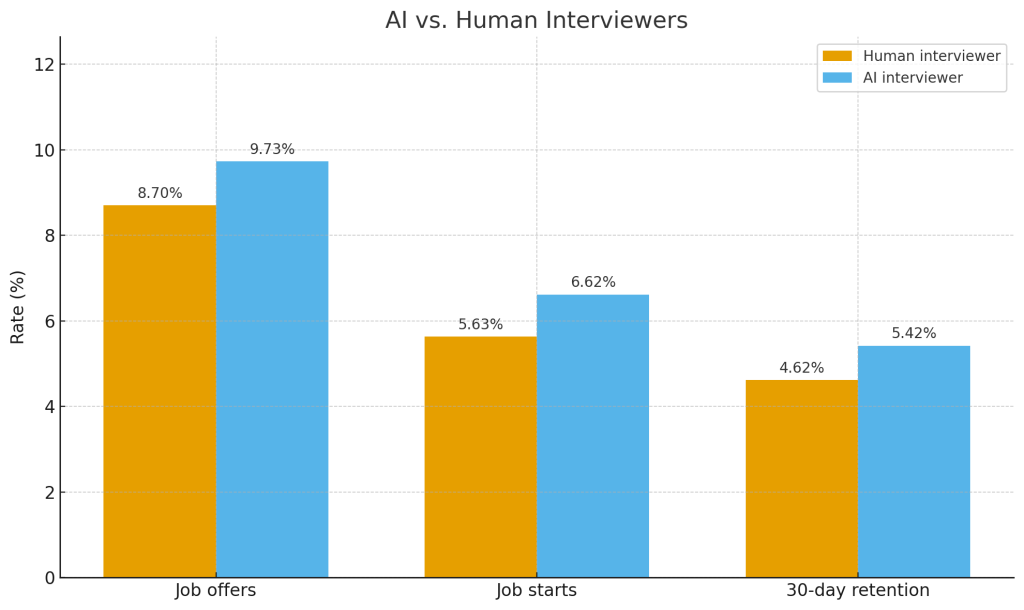A new study, “Voice AI in Firms: A Natural Field Experiment on Automated Job Interviews,” by Brian Jabarian and Luca Henkel, found that the AI performed remarkably well in conducting voice interviews when compared to human interviewers.
The authors partnered with PSG Global Solutions to analyze 70,884 applications for 48 postings, all for entry-level customer service roles in the Philippines.
After an initial screen, applicants were randomly assigned to one of three groups. The first group was interviewed by Anna AI, PSG’s proprietary artificial intelligence agent. The second was interviewed by a human, and the last was given the option to choose between the two. In all cases, a human recruiter later reviewed the results and made the hiring decision.
The study showed that the AI agent matched or improved on the work of human interviewers relative to the human-led interviews. Offer rates rose from 8.70% under human interviews to 9.73% under AI, a 12% increase. Those in the AI group had an 18% higher likelihood of starting the job and a 17% higher likelihood of reaching at least one month of tenure.

Further, when offered a choice, 78% of candidates selected the AI interviewer, although the study notes that candidates with lower language and analytical scores more often selected the AI option.
In short, the AI interviewers outperformed human interviewers across the board.
What does this mean for recruiting?
Call-center roles are high volume, high churn, and they pay ₱16,000 to ₱25,000 per month (about $280 to $435). It is a scale business, and nearly half of new hires leave within the first month. Whether the gains observed here will carry over to other countries or to higher-skill roles remains uncertain.
PSG is betting they will, moving to roll out the approach globally and collaborating on additional field studies. As David Koch, PSG’s Chief Transformation & Innovation Officer, put it: “We’ve proven that it works; now we need to scale it.”
